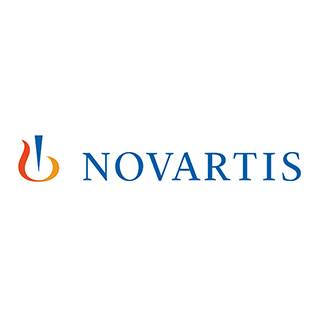
Novartis has announced positive topline results from the phase III PARADIGMS study, investigating the safety and efficacy of oral once-daily fingolimod in children and adolescents (ages 10 to 17) with multiple sclerosis (MS). Data show that oral fingolimod resulted in a significant and clinically meaningful reduction in the number of relapses (annualized relapse rate) in this patient population over a period of up to two years, compared to interferon beta-1a intramuscular injections. The safety profile of fingolimod was consistent with that seen in other clinical trials, with overall more adverse events reported in the interferon group. The PARADIGMS study is the first ever randomized, controlled phase III study of a disease-modifying therapy (DMT) in pediatric MS.
"Living with MS is a tremendous challenge at any age. However, its appearance in children and adolescents, when these young individuals should be developing and focusing on their future, can be devastating," said Vas Narasimhan, global head of drug development and chief medical officer, Novartis. "With no specifically approved treatment options based on a thorough study such as PARADIGMS, the risk of long-term disease progression in these patients is much greater. The outcome of this study is very exciting news for the MS patient community, all of whom benefit from potential advances in high-quality, evidence-based care such as this. I would like to thank the young people with MS and their families, physicians and nurses who participated and made this landmark study possible."
Results of the phase III PARADIGMS study will be presented at the 7th Joint ECTRIMS-ACTRIMS meeting, taking place October 25 - 28, 2017, in Paris, France.
Commonly diagnosed during adolescence, pediatric MS is associated with relapses that are more frequent and often more severe than those seen in adults with MS. Relapses negatively affect mobility, balance and cognitive function, and patients with pediatric MS are more likely to accumulate physical disability at an earlier age than those diagnosed as adults. There is currently no treatment indicated for children and adolescents living with MS, based on randomized, controlled, clinical study data.
Fingolimod is not currently approved for the treatment of pediatric MS. Novartis plans to complete a thorough analysis of these important data to speak to health authorities to agree on next steps for submission.
The Phase III PARADIGMS study (NCT01892722) is a flexible duration (up to two years), double-blind, randomized, multi-center Phase III study to evaluate the safety and efficacy of oral fingolimod compared to interferon beta-1a in children and adolescents with a confirmed diagnosis of multiple sclerosis (MS), followed by a five-year open label extension phase. The study enrolled 215 children and adolescents with MS, between the ages of 10 and 17 years with an Expanded Disability Status Scale (EDSS) score between 0 and 5.5. Patients were randomized to receive once-daily oral fingolimod (0.5 mg or 0.25 mg, dependent on patients' body weight) or intramuscular interferon beta-1a once weekly.
The primary endpoint of the study was the frequency of relapses in patients treated up to 24 months (annualized relapse rate). Secondary endpoints include the number of new or newly enlarged T2 lesions, Gadolinium enhancing T1 lesions, safety and the pharmacokinetic properties of fingolimod, all measured throughout the treatment period.
The Phase III PARADIGMS study was conducted in 87 sites over 25 countries, and was designed in partnership with the US Food and Drug Administration, European Medicines Agency and the International Pediatric Multiple Sclerosis Study Group.
Novartis announces, fingolimod in children, adolescents with ms